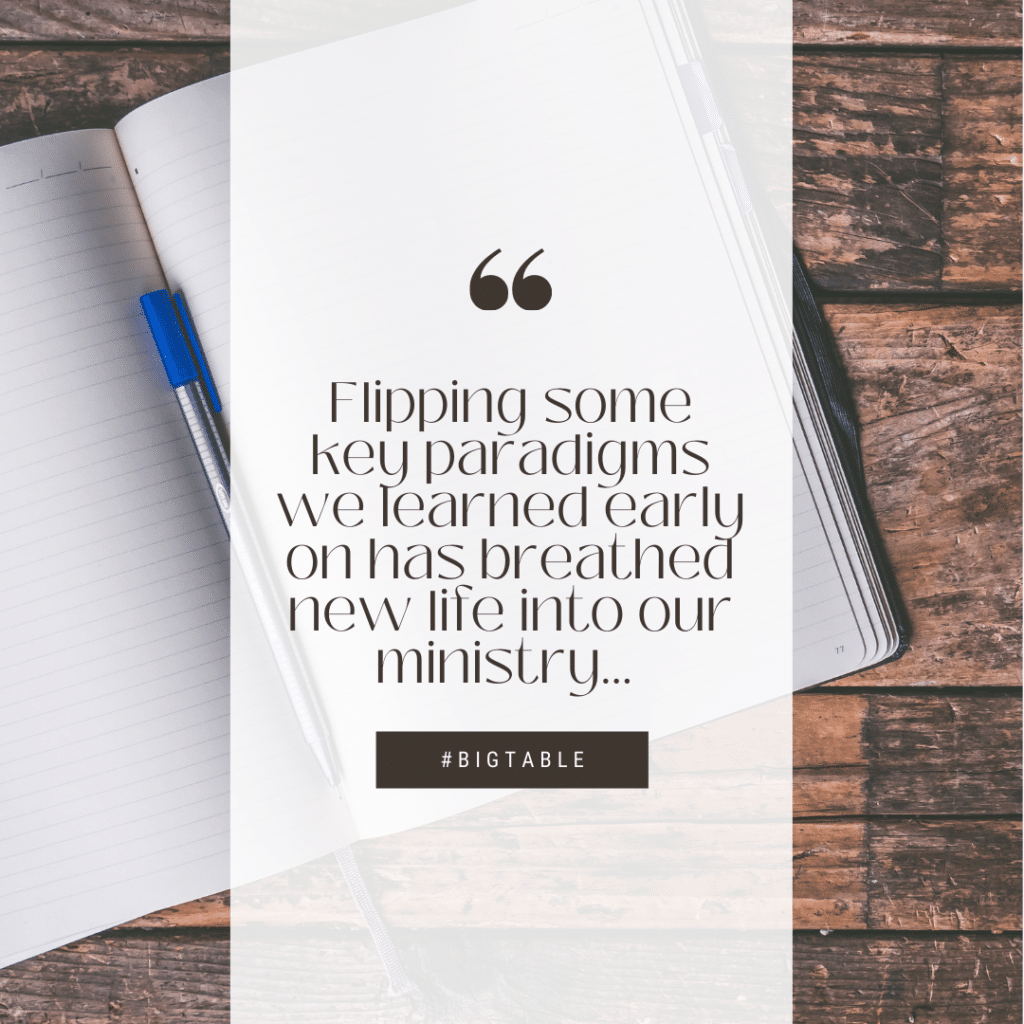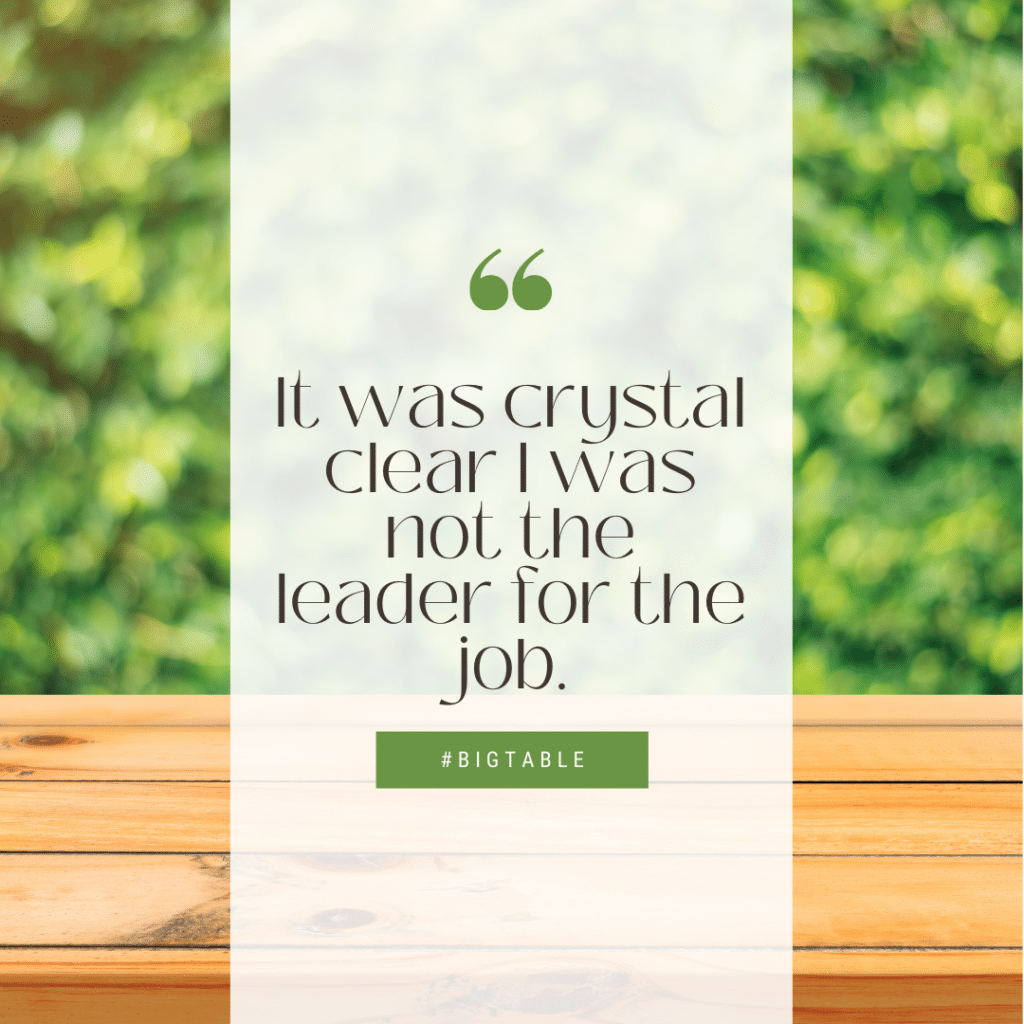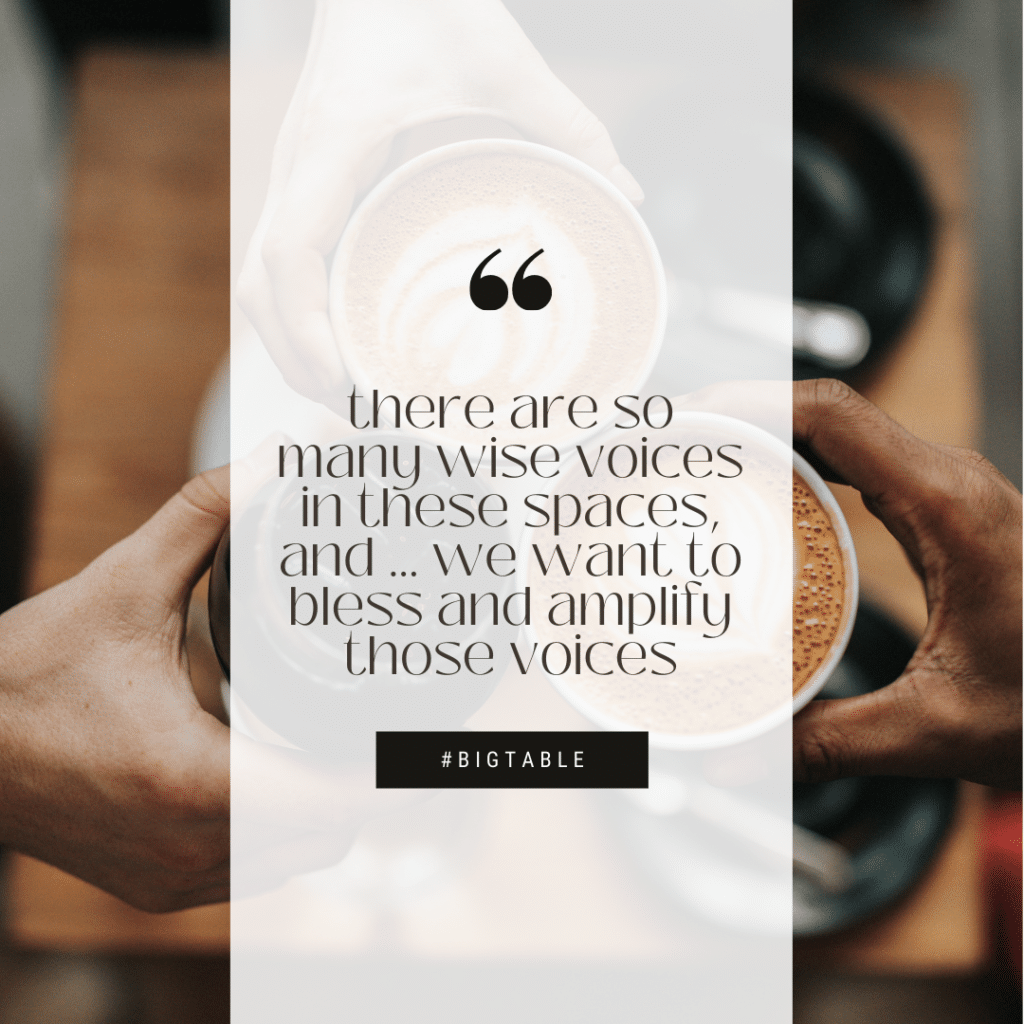Why this name? It’s long, especially if you have to tap it into a smartphone. One word names are so evocative and catchy. And don’t churches of all sizes matter? We’re limiting “our market.”
We know. Still, these two phrases capture so much of what we’ve experienced over the last few years. Flipping some key paradigms we learned early on has breathed new life into our ministry – not just what it looks like on the exterior, but our interior experience of pastoring. Our everyday work now aligns more and more with our deepest values, what we really believe it means to follow Jesus. It’s still hard work, but more often than not, it’s the invigorating kind of hard.
This is our story.
Small Church
We co-pastor a small church, averaging 100-125 in worship on any given Sunday. We used to be bigger. We used to want to be bigger. Aren’t bigger churches better? Don’t healthy things grow (sub-text: numerically)?
Then in 2016-2017, we opened what ended up being a two-year-long, church-wide dialogue on human sexuality and LGBTQ+ inclusion. At the same time, we experienced several devastating leadership transitions and challenges.
By the fall of 2017, we’d lost more than half our congregation. It was incredibly painful for everyone, and, absolutely, some of the heartache could have been avoided if we had led differently. We still grieve those mistakes. But some of the pain was necessary – a dying to an old way of being church so that a new and really beautiful way forward could emerge.
We love our friends in bigger churches and value the work they do to build God’s kingdom/kindom.* We’re so glad to be friends and partners – if you’re here reading, blessings! At the same time, we have found amazing freedom as we’ve unhooked from models and methods we learned in our early years of ministry that implicitly defined success primarily in terms of getting bigger. (Think the 3 B’s: budget, butts, and buildings.) We’ve also grown increasingly aware of problematic assumptions about power, influence and consumerism embedded in those models.
Our unwanted season of loss – a season many churches are going through in their own ways right now in the wake of COVID – carried an unexpected gift. It gave us the opportunity to embrace the unique joys and challenges of being small and growing potent.* See, potency means you can be any size of church, even quite small, and still set a
… Big Table
If you came to visit us in person, we might invite you to go with us on a tour of our big, fancy campus. Really we’d just be taking a walk around our little city neighborhood.






The hub would be the elementary school we rent for worship each Sunday, 60-100 of us on folding chairs under canopies on the blacktop while another 40 or so Zoom in. (Someday we’ll get back to the rickety wooden rows of the auditorium.) Bill often walks over from his house midweek as well to chat with folks, from students on the playground to the school counselor who helps connect families with our community food pantry, to the head of the parent center, who’s also a neighbor and key volunteer with our big summer Kids Camp.
The community food pantry that sprang up at the beginning of quarantine and expanded to serve around 50 families is housed across the street from the school in a neighbor’s garage. Matthew and his husband generously offered the space despite all the hurt they’ve experienced from the big C Church over the years. Now a crew of volunteers keeps food staples like cereal and canned vegetables flowing in and out from its neat shelves all week long.
On the other side of the school, just across the staff parking lot, sits our community house. We don’t own it, but somehow, miraculously, it’s ours. One day last fall, out of nowhere, a donor offered to buy a home for us to use rent-free if somehow we could help families in crisis. Long story short, and we’ll tell it all someday, two families working toward housing stability now live here, and a third will move in when the garage remodel is done.
As if that’s not enough, several months ago the director of the nonprofit that provides all the wraparound services for those families spotted the vacancy created when our favorite coffee spot, just a block from the school, closed down during the pandemic. It had been a favorite place to meet up with folks, our office space for the price of a good cup of coffee – and it will be again. The nonprofit is opening a new coffee house, now not only a community hub, but an opportunity for parents overcoming housing insecurity to develop their work skills and resumés. Two of the three lead staff there are from our church, and we’re thrilled to support the shop however we can.
Incredible partnerships and connections like these, so many of them unexpected – that’s a big part of what we mean when we say “big table.” It’s not just inclusivity around the bread and cup on Sunday mornings; it’s not just how we run meetings and build teams; it’s not just LGBTQ people and BIPOC as elders or preachers… It’s a stance toward everyone all the time that says this is not our table, we are fundamentally not in charge. It’s Jesus’s table. Good thing, too, because clearly he spreads a much more abundant feast than we ever could!
Amazing things are happening in our neighborhood, in lives all around us. We’re sure that’s true for you as well. It’s so freeing to just be guests at this big, generous table, celebrating the goodness before us and asking if there’s any way we can pitch in.
* A few folks we’ve learned and borrowed from here: Karl Vaters, Small Church Essentials ; Ada María Isasi-Díaz, who popularized the term “kindom.”




Everything you are describing is what I long for in a church. I want the activity of the church to be a blessing to the community. Like if the church was missing, the community would notice. I love that your “campus” is your community! Brilliant. All the activity you described is helping the school, providing food, and creating housing for families and individuals in need of a home. It feels simple, doable, and inspiring. It sounds like the church in the book of Acts. I think I join many others by saying, “I want this kind of church!”
Thanks, Angela!
“This is not our table…. We are fundamentally not in charge..” Whew. What a breath a fresh air!
Yes – it changes so much! Thanks for reading, friend.